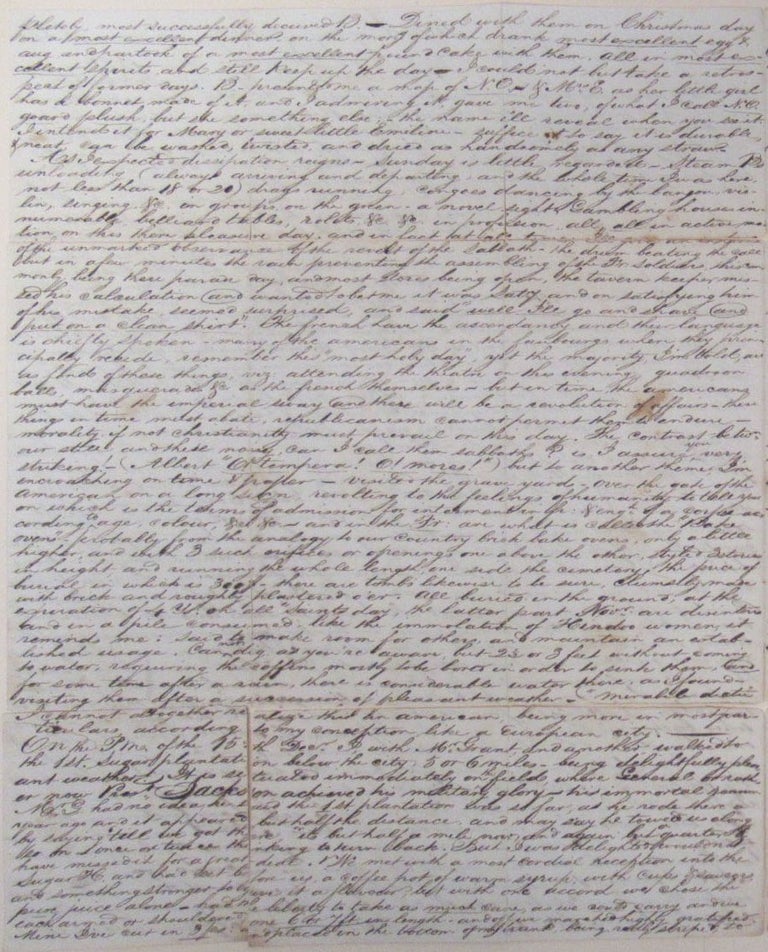
Lengthy Manuscript Letter Describing a Young Man's Visit to New Orleans, Including his Journey from Natchez via the Mississippi and then Onward to Savannah by Sea, 1829
Autograph letter signed, to Baltimore merchant Abel Webb from his son (first name uncertain), dated January 28, 1829. Bifolium, 7.75 x 9.75 inches, 3.5 pages of text and address in a small but legible hand, about 2,250 words in all. In delicate condition: a few old tape repairs; splits at several folds causing sections to be detached from one another, but all matching up and complete except for a few small sections of loss, totaling about 12 words lacking.
An interesting and detailed letter, in which the young Mr. Webb recounts his travels in the American South in 1828 and 1829—a journey he describes as "the best school I've ever been placed in." His story begins in Natchez, Mississippi, where he sought, but failed to find, short-term employment. Happy enough to depart, for he "disliked the place," he boarded the steamship Walk in the Water and traveled downriver to New Orleans, arriving at "the immense mart of commerce" on December 13, 1828. Much of the letter is dedicated to description of New Orleans, which seems to impress and outrage him in equal measure. He is delighted by the quality and price of his hotel ("having the most accommodating publicans I ever had and being more moderate than any private boarding house half as good") and enjoys good food and company (primarily of people he knows from Baltimore). But he is greatly disturbed by the general failure to observe the Sabbath. On any given Sunday, one may see steamboats loading and unloading, wagons transporting cargo, and even people singing and dancing (including "congoes dancing by the banjon") on the green. There are also "gambling houses innumerable, billiard tables, rolets &c, &c, in profusion" operating on the Sabbath, and many Americans engaging in the French practice of "attending the theatre on this evening, quadroon balls, masquerades, &c." He visits a cemetery, where he is disturbed by the burial arrangements necessitated by the high water table, as well as a sign, "revolting to the feelings of humanity, to tell you on which is the terms for admission of internment in fr. & eng. of a corpse according to age, color &c." Also of interest is the description of a visit to a sugar plantation "situated immediately on the fields where General or rather now Pres’t Jackson achieved his military glory," where he and his companions are served warm syrup from a coffee pot and allowed to carry home all the sugar cane they can carry. Webb carefully packs three pieces in his trunk to bring home for his family, noting that it "is redly striped" and "termed the ribbon cane, and who knows but it was nourished by the blood of Englishmen." The remainder of the letter describes his rough voyage to Savannah by sea and provides news of friends and acquaintances he encountered there. Abner Webb, a native of Connecticut, had settled in Georgia in the first decade of the nineteenth century, and his son notes that he was born there. Alas, though we have found records pertaining to all of his younger siblings (born after a move to Baltimore), details on the writer himself remain elusive.
Item #20041
Sold


